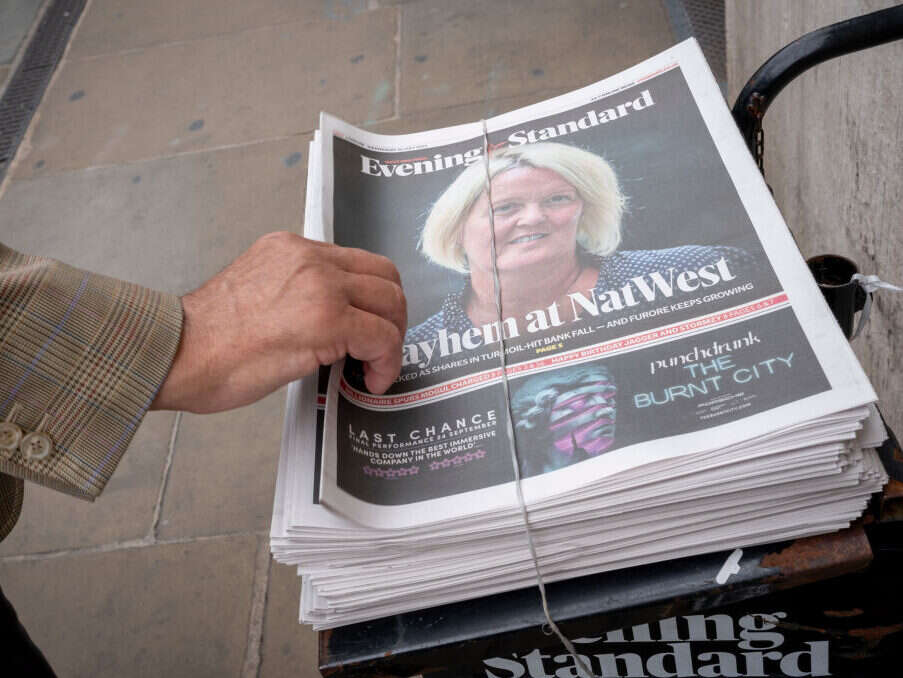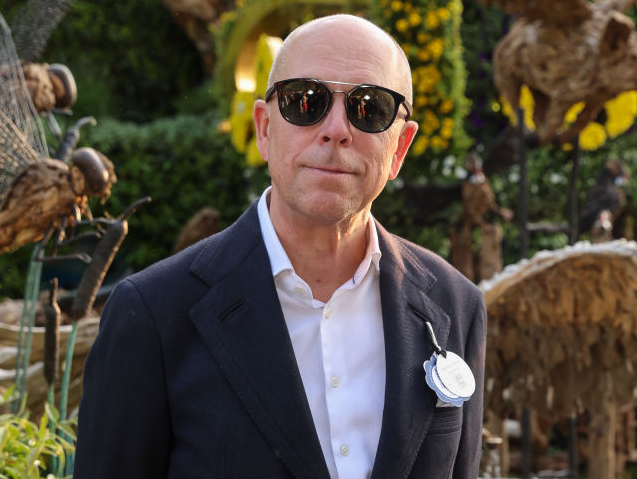
Losses at the Evening Standard were up by 14% in 2022, marking its sixth consecutive year in the red.
The publisher, majority-owned by Russian-British businessman Evgeny Lebedev, has since put in place a strategy aimed at boosting digital and event revenues under new editor Dylan Jones.
The publisher recorded a pre-tax loss of £16.4m in the year ending 2 October 2022, up from £14.4m in 2021. Its operating loss was up 18% to £14m.
Other than 2020, the year the free newspaper’s commuter distribution model was first badly hit by the Covid-19 pandemic, 2022 saw the worst pre-tax losses recorded at the company since 2010.
Revenue did increase by 13%, however, reaching £31.6m, of which 90% came from advertising sales.
In the Companies House accounts for Evening Standard Ltd, company director Manish Malhotra said there had been “some improvements” in revenue in the first half of the 2022 financial year as recovery from the Covid-19 pandemic began, but that the cost of living crisis had “serious impacts” on advertising in the second half.
Since the end of the 2022 financial year, the Evening Standard has appointed a new editor, ex-British GQ editor-in-chief Dylan Jones, along with a new executive editor, former associate managing editor at The Telegraph George Chesterton. It also moved offices in November from High Street Kensington to Moorgate.
Consultants were engaged to develop a new direction for the business, resulting in a focus on two areas: "the development of a digital-centric newsroom and the growth and launch of events and exhibitions to diversify the revenue base away from such a heavy reliance on advertising".
Jones said in a New Statesman column shortly after his arrival in June that the paper is "developing a new business model that doesn’t rely so much on commuters, and it’s been exhilarating teasing out ways in which we can genuinely thrive. It’s going to be a fascinating autumn."

Digital revenues have "performed poorly" since the end of the 2022 financial year in October due to "advertising market challenges exacerbated by audience stagnation", the accounts reported.
"A plan has been put in place to reinvigorate audience growth and to improve engagement on the digital platforms. This will involve a relaunch of the digital platforms in 2023."
The Evening Standard's new events portfolio began with the SME XPO targeting small and medium-sized businesses that was held at the London Excel in April and was profitable, according to the publisher. It said it would launch two further exhibitions this year and others in 2024.
Currently, 2% of the Evening Standard's total revenue comes from events.
The publisher also suffered from "significant inflationary pressure" on costs, particularly newsprint which makes up a "significant proportion" of its costs, meaning in total they rose by 8% to £45.6m.
"The company did maintain strong controls on circulation (in total reduced by 12% across the year) and pagination (increased by 10% due to improved revenue) in order to control cost pressure," it said.
During the Covid-19 pandemic, for the first time distribution of the Evening Standard had to rely on home delivery as commuters stayed at home. This ended in March 2022, with distribution returning in full to stations and streets. Distribution costs dropped by 17% to £8.1m in 2022.
In September, the final month of the 2022 financial year, the Evening Standard had a free daily distribution of 404,821. In June, the most recent figures available, it was 308,874.
The Evening Standard's workforce (monthly average number) dropped from 236 in 2021 to 221 in 2022 (213 in news publishing and eight in events).
Total staff costs were down 5% to £15.3m while the company's highest-paid director, who was not named in the accounts, received £449,000 in 2022, down from £487,000 the year before.
Email pged@pressgazette.co.uk to point out mistakes, provide story tips or send in a letter for publication on our "Letters Page" blog
